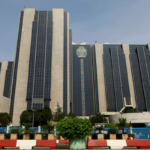by Seth Onyango
Surging demand for digital services and cloud computing is driving a new wave of investment into Africa’s data centre market as investors take note of the AI boom.
Latest figures from investment bank DAI Magister forecast the market to reach over US$7 billion by 2028, with an impressive annual growth rate of 7% from 2024 to 2028.
“There has been a significant surge in internet usage across Africa, with the number of users soaring to approximately 645 million in 2023, representing a remarkable 3.5-fold increase compared to 2014 figures,” the bank states.
This growth, coupled with the rising demand for AI-driven applications, is fuelling demand for robust data infrastructure, as South Africa gobbles up the bulk of investments.
Ernst & Young notes, “While artificial intelligence (AI) has entered mainstream awareness, it is certainly in its infancy as it relates to size, reach, and impact. This is creating pressure on the data centre industry to stay ahead of demand by planning for multiple potential scenarios around the performance expectations, government regulation, and the future shape of the AI industry.”
Investors in data centres are thus timing their moves to capitalise on this surge, a strategy that could make Africa a hot new hub for digital infrastructure.
Big spenders keen to expand their footprint on the continent are Africa Data Centres, Huawei Technologies, Icolo.Io (Digital Realty), IXAfrica and MainOne (MDXI).
Telecom Egypt, NTT Global Data Centers, Paratus Namibia, Rack Centre, Raxio Data Centres, Teraco Data Environments (Digital Realty) and Wingu are also big players in the space.
In recent years, there has been a notable influx of capital, with major projects announced in South Africa, Nigeria, Kenya, and Egypt.
Recent investments highlight the sector’s momentum. For instance, last week, Africa Data Centres, a subsidiary of Cassava Technologies, announced the expansion of its CPT1 data centre facility in Cape Town, South Africa.
This project will add another 6MW of IT load, effectively doubling its current capacity.
The expansion, funded by a US$300 million loan from the US International Development Finance Corporation (DFC), will see the addition of three new halls on the existing campus.
ReportLinker’s 2022 figures indicate the data centre sector gobbled up US$2.6 billion of investment in 2021 as it projected rapid growth.
South Africa, Kenya, Egypt, Nigeria and Ethiopia will attract the lion’s share of the new investment as the market builds towards the US$7 billion mark over the next few years.
Other states with noticeable investment activity are Morocco, Algeria, Ghana and Ivory Coast.
“In Africa, there are more than nine data centres that have added a white floor area of around 30,000 square feet area or more each in 2021. Several country governments are taking initiatives by developing special economic zones, and industrial parks, which provide tax exemptions for data centre development,” the report reads in part.
A ReportLinker report also shows the increase in submarine cable investment and fibre connectivity is likely to attract more data centre investments in the region.
South Africa has the highest number of submarine cable deployments, followed by Nigeria and Kenya.
While the Internet of Things (IoT) is not new in Africa, COVID-19 has forced businesses once resistant to digital transformation to embrace tech.
This includes restaurants where more people now order food online, as well as the retail, logistics and education sectors, which in a bid to keep pace with demand, satisfy new expectations and retain customers, are forced to adopt digital solutions.
To store, communicate, and transfer data seamlessly, these businesses are creating more demand for data centres to ensure that their supply chain is not disrupted.
It is an opportunity for investors to plug significant gaps, given that currently, most of Africa’s data is stored elsewhere, zipping down undersea cables that often make landfall in places like the French city of Marseille.
The Economist reported that from the continent’s southern tip, “it can take 180 milliseconds for a message to reach Europe and back— long enough to frustrate people trying to trade shares or play games.”
But with new multi-billion dollar investments into data centres, the internet will be brought much closer to users, laying the ground for the advancement of Africa’s tech revolution.
bird story agency
Increasing demand for digital services and cloud computing is driving significant investment into Africa's data centre market, which is projected to exceed $7 billion by 2028, growing at an annual rate of 7% from 2024. Internet usage in Africa has surged to approximately 645 million users by 2023, a 3.5-fold increase since 2014, intensifying the need for robust data infrastructure. South Africa is attracting the bulk of these investments.
Ernst & Young highlights that AI's nascent stage is pressuring the data centre industry to anticipate future needs and regulatory scenarios. Major investors include Africa Data Centres, Huawei Technologies, and others, with substantial projects announced in South Africa, Nigeria, Kenya, and Egypt. A notable investment is Africa Data Centres' CPT1 facility expansion in Cape Town, funded by a $300 million loan from the US International Development Finance Corporation, doubling its capacity.
The sector received $2.6 billion in 2021, with continued rapid growth expected. The majority of new investments focus on South Africa, Kenya, Egypt, Nigeria, and Ethiopia, though other countries like Morocco and Ghana also show activity. Special economic zones and an increase in submarine cable investment are expected to further attract data centre investments. COVID-19 has accelerated digital transformation across various sectors, creating more demand for data centres. The goal is to localize data storage, reducing reliance on overseas facilities and enhancing Africa's digital infrastructure.






